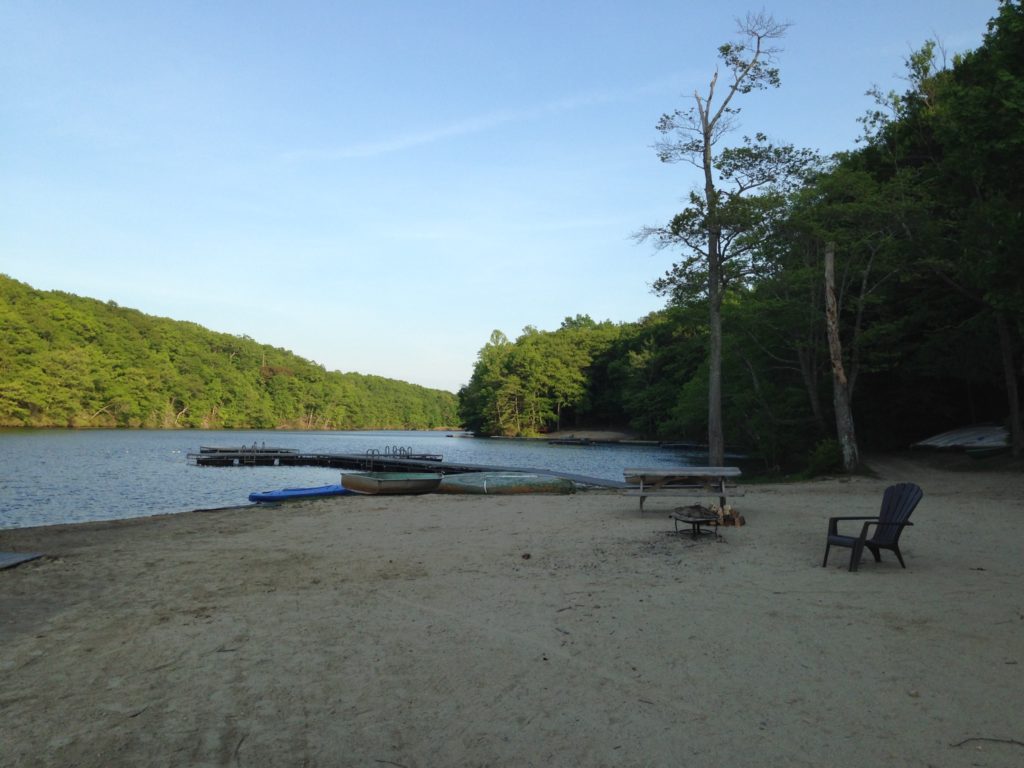
The joys of summer: lakes, beaches, pools; swimsuits instead of jackets. It’s wonderful to embrace the freedom of being outside and feeling the air on your skin.
But how much skin should a child show? As in, is it okay for kids to run around in the buff? At what age, if any, does this become not okay?
A young mom I know was thrown off balance recently by someone who approached her at the local lake and said her toddler shouldn’t be naked on the beach. The mom had changed her two-year-old out of a swim diaper and was letting her play on the sand before they got dressed and headed home. She was surprised anyone was bothered and worried whether she might have done something wrong…but had she?
In my view, no, she hadn’t. But nudity, even of small children, can upset some people. With little ones, I think this is an overreaction, but it does happen. As kids get older, it gets trickier. Where do you draw the line between appropriate social behavior and letting your children feel free and celebrate their bodies? What is “appropriate” here?
Like so many small parenting decisions, this question gives you a chance to start laying a foundation for healthy sexuality when kids grow up. Because the minute you start talking about private parts of bodies and social expectations about them, that’s what you’re doing. But no worries; it’s not hard to begin this conversation, even when kids are really young.
Here are the issues to consider and ways you might talk about them:
Hygiene. Lovely as skinny-dipping is, a child who isn’t toilet trained shouldn’t swim in a public pool or lake without a swim diaper. “If people poop or pee in the water, it puts germs there that can make other people sick. So until you learn how to use the potty, you’ll need to wear a swim diaper in the water.”
Privacy and context. “People wear swimsuits to cover the parts of our bodies we keep private. Vulvas and penises are such special parts that we don’t show them to everyone. In our house, where it’s just our family, it’s fine if you want to be naked. But when we’re out and other people are around, we wear clothes.”
Respect and differences of opinion. “When we’re out in public, we can’t always do what we want; we also have to be considerate of other people. Some people aren’t comfortable when people are naked. I don’t always agree about that, but other people’s opinions matter, too.”
Assertiveness. If your child is young enough that you think someone is out of line to complain about their nakedness, you can say so, politely. “Oh, Mrs. Grant, I’m sorry if Tyler’s nudity bothers you. But he’s really little and my partner and I are trying to teach him that bodies are nothing to be ashamed about. Of course when he gets older he’ll wear a swimsuit.”
Age-appropriateness. Very young children have no self-consciousness about their bodies, but as kids get older, it’s normal for them to start becoming modest. The older kids are, the more likely other people are to be bothered by their nakedness. Certainly by the time your children are six or seven they should be expected to cover up in public. (Most of them will want to by then anyway.) “There are different rules at different ages. When you were one, you could be naked at the pool, but there were a lot of things you couldn’t do. Now that you’re six, you have more privileges, but we also expect you to understand how to be polite, and part of that is covering up in public.”
Foundational Values
If you think about it, all of these factors will be relevant when kids grow up and start dating and, eventually, having sex. (Which someday they will, hard as it may be to imagine that.)
You’ve introduced concepts like:
- There’s nothing wrong with bodies and nothing wrong with genitals. We cover them because that’s the social custom and because they’re private, not because they’re a problem.
- In some settings and with people we’re close to, we can reveal private aspects of ourselves and our bodies.
- Other people’s health and safety matter.
- Our preferences should be balanced against other people’s needs and wants.
- We don’t always have to do what someone else wants; we can speak up.
- Some things are appropriate at some ages and not at others. Increasing maturity and responsibility bring increasing privileges.
See? It’s no big deal to say these things, yet you’ve planted some important ideas and begun a conversation. Intro to sex ed plus playing at the beach: just another day in the life of a parent!